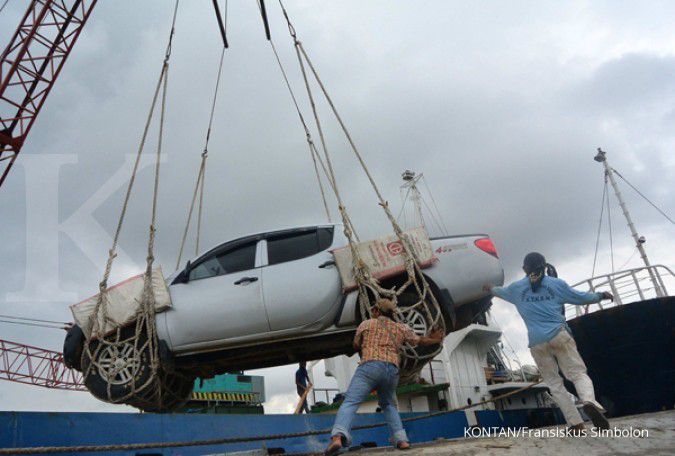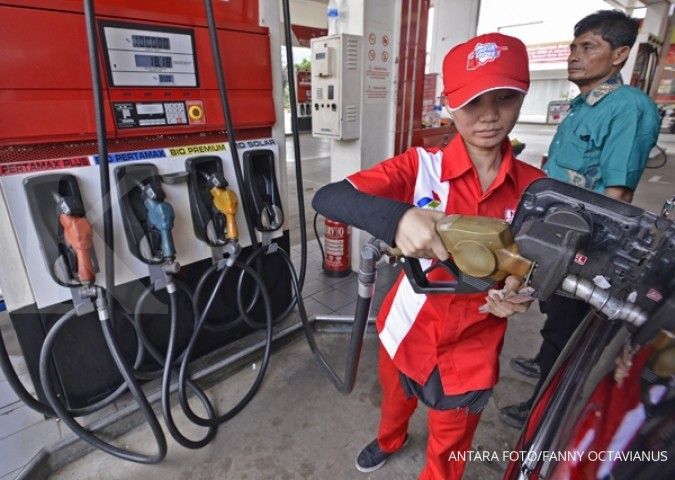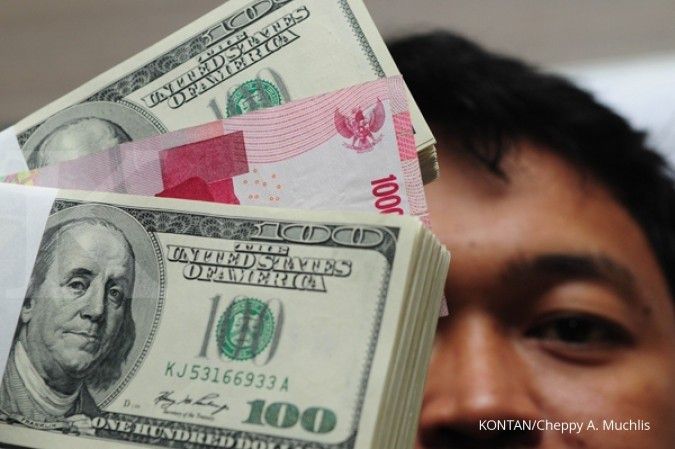JAKARTA. Alarm bells have begun to ring again after the release of statistics showing the country’s current-account deficit, the major worry among investors, widened far more than had been expected.
Bank Indonesia (BI), the central bank, announced on Thursday that the deficit in the current account — the broadest measurement of international trade that includes exports, imports, services and transfers — topped US$9.1 billion, equivalent to 4.3 percent of gross domestic product (GDP), in the second quarter of this year.
The new figure was just below the record high level of $10.1 billion, or 4.5 percent of GDP, which Indonesia recorded in the second quarter last year.
At that time, the figure spooked investors and triggered a massive sell-off of rupiah assets, with the size of the deficit prompting US-based investment bank Morgan Stanley to put Indonesia in its basket of “Fragile Five” economies most vulnerable to capital flight.
BI Deputy Governor Perry Warjiyo said the deterioration in the current account was beyond the monetary authority’s ability to control, especially as it was driven by the large deficit in the oil-and-gas trade balance.
BI statistics show the deficit in the oil-and-gas trade balance rose to $3.2 billion in the second quarter of 2014, up from a deficit of $2.1 billion in the same period a year earlier.
Meanwhile, in the non-oil-and-gas trade balance, Indonesia posted a surplus of $2.7 billion in the second quarter, higher than last year’s surplus of $1.5 billion.
“Our monetary policy has more of an effect on the non-oil-and-gas side,” said BI Senior Deputy Governor Mirza Adityaswara.
“To achieve a better current-account deficit posture, we must wait for the implementation of an energy-related policy that can reduce oil imports,” said Mirza.
Indonesia’s current account has been in the red for 11 consecutive quarters as the slump in commodity prices in recent years has hurt exports, while imports have remained high as a consequence of the country’s robust economic expansion.
Nevertheless, BI moved to calm market concerns, as it stressed the $9.1 billion deficit in the second quarter was high due to cyclical factors, such as the seasonally high imports and transfers of funds overseas by companies repatriating earnings.
The central bank also predicted that the second-half deficit figure would be smaller due to the resumption of copper shipments, thanks to a compromise deal struck between the government and certain mining firms over the Mining Law, which had banned raw-ore exports.
This should take the full-year current-account deficit to around $27 billion in 2014, lower than the $30 billion that Indonesia posted last year, according to BI estimates.
Nevertheless, analysts were cautious over the prospects of a recovery in Indonesia’s external balance and the impact it could exert on foreign-fund flows in Indonesia.
“We think it [the current-account deficit] will have a negative impact on investor sentiment since the figure is probably higher than what people were looking for,” Credit Suisse economist Santitarn Sathiratai said in an emailed interview on Thursday.
“BI has done its job of tightening monetary policy, now it is the government’s job to raise fuel prices to cut the deficit and oil imports,” he added.
While the market might perceive BI’s reasoning as acceptable, a larger-than-expected current-account deficit would still nonetheless equate to “a red alert on global investors’ scorecards”, cautioned Wellian Wiranto, an economist from OCBC Bank in Singapore.
In Indonesia’s case, the threat could be serious given the looming threat of tighter global liquidity ahead of an expected US interest-rate hike next year, which could reverse capital flows from emerging to developed economies.
“This is not to say the market would necessarily refrain from buying into the Indonesian market,” Wiranto said. “It just means that investors exposed to Indonesia will be especially sensitive to any whiff of a rate hike from Washington, compared to if they were to hold assets from countries with a less problematic current-account profile.” (Satria Sambijantoro)
/2014/06/18/94326943.jpg)













